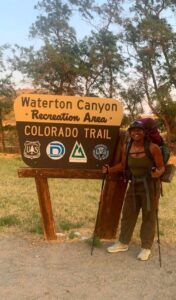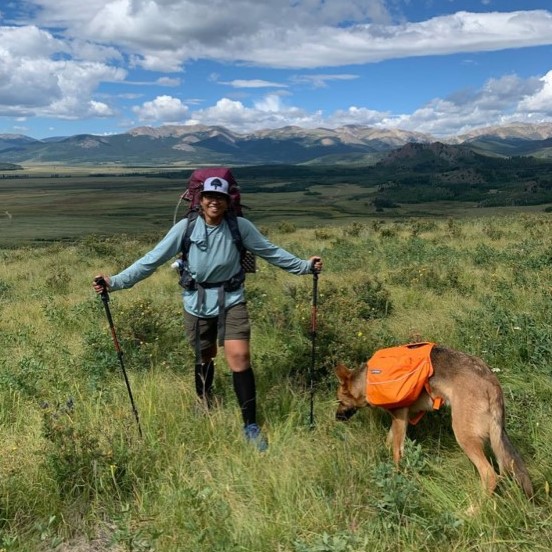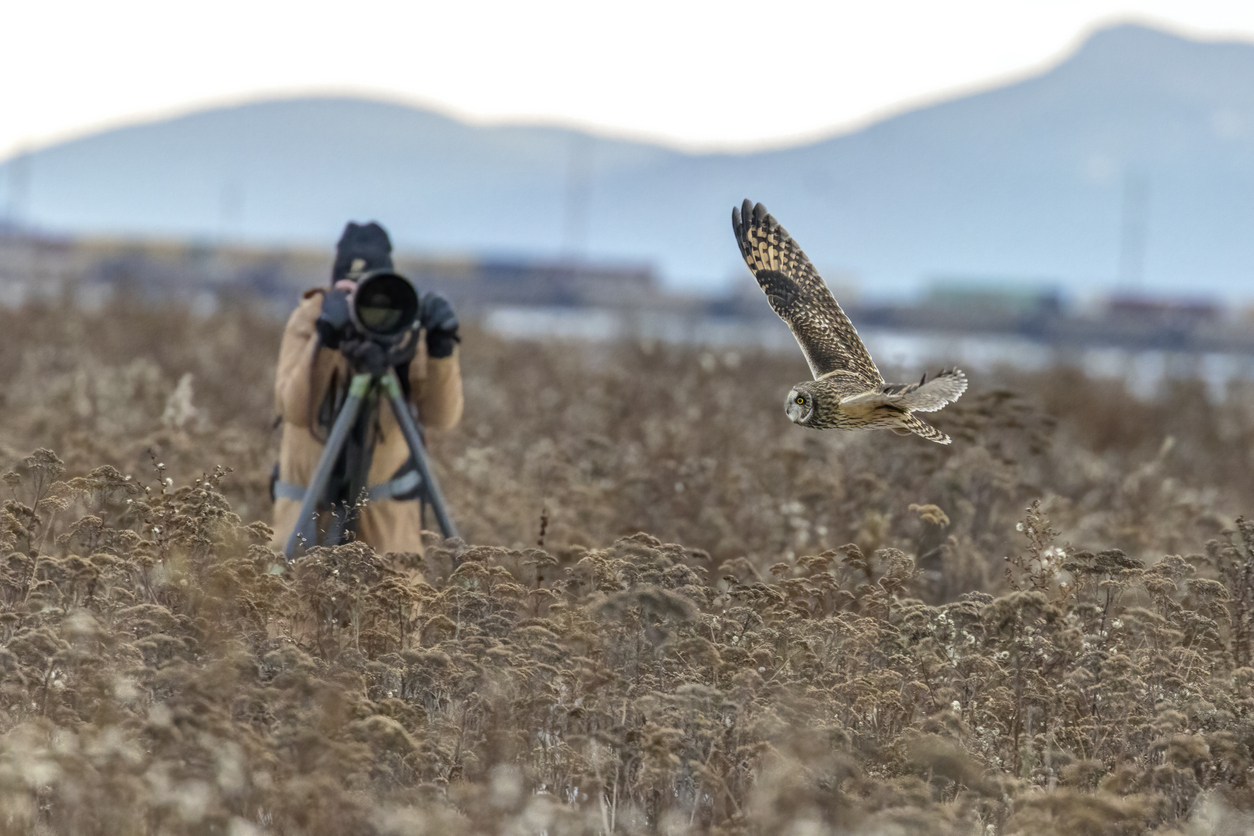
This month, my 23-year-old daughter set off to solo hike the Colorado Trail. After a flurry of phone calls, text messages, and test pings on her Garmin GPS, I was cut off. In the days after she left, I trolled in vain for any sign of life, coming up with only an occasional Instagram photo.
The Colorado Trail is a continuous, narrow, 485-mile path from Denver to Durango. It passes through national forests, wilderness areas, and five major river systems, not to mention penetrating eight of the state’s mountain ranges.
In the reflective hours of sleepless nights, awaiting a crumb of communication from my baby, I wondered, “Why did she do this?” What made this young beautiful being want to bury herself deep in nature, alone, on such a harrowing adventure? Sure, it’s described as an amazing and life-changing experience, but it’s also described as a four-to-six-week journey bearing risks of hypothermia, dehydration, lightning, and snowfields in mid-summer. (WHAT?!)
Another question keeps knocking around in my head: “Is she prepared?”
What mindsets, skillsets, and toolsets are required to make this journey? Did I do everything I could—as her mom and biggest fan—to prepare her for this challenge? To be successful? Not just to finish, but to learn from and be transformed by the experience?

Kerri’s daughter set off to solo hike the Colorado Trail.
Here are my thoughts on what it takes to raise a thru-hiker.
MINDSETS
Growth Mindset—Reserve the right to be smarter tomorrow than you are today.
Gratitude Mindset—There’s a gift in every experience you have if you know how to look. Expand your horizon and find gratitude for something…anything…everything.
Positive Mindset—Expect things to work out for you and don’t borrow trouble.
SKILLSETS
Resilience—Yesterday’s experience is behind you. Today is a new day with new steps to take. Get up, put your shoes on, and take the first next step.
Self-Reliant Learning—Ralph Waldo Emerson, the 19th century transcendentalist philosopher said that non-conformity and self-reliance were the secrets to happiness. Take responsibility for your own life experiences.
Empathy—Be kind to yourself. In the darkness of night, with only your over-active thoughts and your hyper-vigilant senses, be the best listener and thought partner to yourself that you’ve ever known.
TOOLSETS
Nature’s Moments—When you notice your thoughts cycling or fixating on the past or future, step out into nature and take notice of its beauty. Breathe in the fresh air. Let the sun touch your skin. Take in an eyeful of lush green color. Listen to the sounds of birds, insects, and trees whispering in the breeze.
The Path—Someone has been down this road before. When you feel exhausted, hungry, and miserable, focus your attention on your feet. Feel them solidly on the ground. Think about where they’ve been and where they’re going. Say a word of gratitude for the work they put in on your daily grind.
Navigation—Feeling lost? Letting your mind over-process every little thing? Having a colossal self-talk berating? Reset your thoughts with your north star. Find one bright spot, literally or figuratively, and admire it. Tune out the noise of everything else and feel a connection with this guiding light.

“Tune out the noise of everything else and feel a connection with your north star.”
If you thought these are only for my precious thru-hiker, you got me all wrong. I need these things as much as she does, as I cope with my hopes and fears for her adventure.
If you have a loved one embarking on a risky path, maybe these mindsets, toolsets and skillsets will help you accept what they need to do. And once you’ve accepted their journey, use it as a self-discovery adventure of your own.
- Stay curious. Use questions to navigate the problem solving, troubleshooting, learning, and discovery.
- Stay grounded (physically and mentally). Don’t attach your self-worth to the outcome.
- Stay open. Listen generously. Stand in the worn, weather-beaten shoes of your adventurer and imagine the view.
It may be clear to a few of you that this post is an elaborate ploy to brag about my daughter. Yes, she’s really quite something. Thank you for reading.




